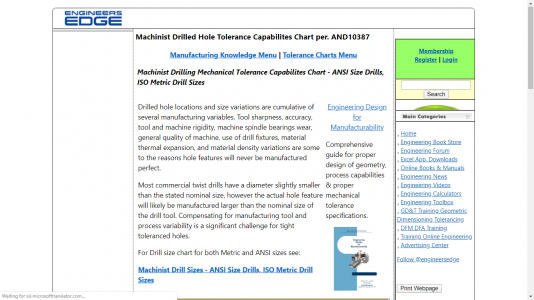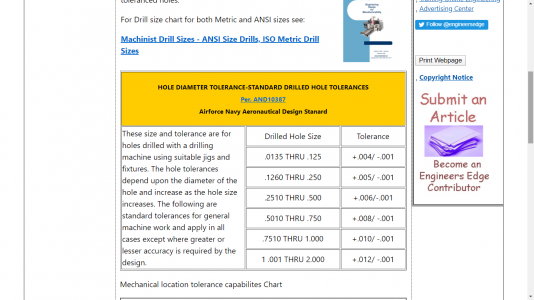- Joined
- Dec 18, 2019
- Messages
- 6,437
Why is it that a drill isn't a precision cutting tool? Is it a materials problem, insufficient rigidity, or something else?Unequal cutting edge length (point off center) is the culprit. A drill point gage is the tool, though it's only as good as your eyes.
View attachment 326012
The ultimate test is drilling a test piece and measuring. A drill will always cut on size except when you need it to. Just like a drill press, twist drills are not a precision cutting tool. That's why we bore and ream.
While looking up drill point gauges, I found practically no hits on 135 degrees. I have some cobalt drills and they are 135 degrees. I did find a reference to Mechanix-Mate drill point gauge with 118 and 135 degree head, but it appears they are no longer made. Lots of 118 and the corresponding half angle of 59 degrees. Either that, or my google-fu is weak.




 Boring sounds like the way to go, but is darn difficult for smaller sizes. Above 3/8" seems to be doable, at least for "not too deep" holes.
Boring sounds like the way to go, but is darn difficult for smaller sizes. Above 3/8" seems to be doable, at least for "not too deep" holes.

